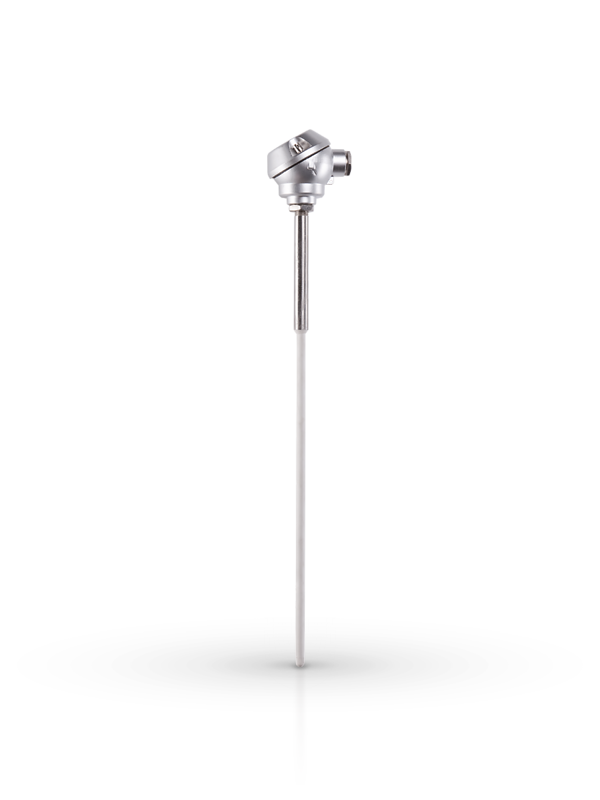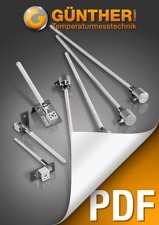Micro- and laboratory thermocouple assemblies (18-TKL) are preferentially used for technical temperature measurements in liquid and gaseous media within a temperature range between 200°C and 1800°C.
Micro- and laboratory thermocouple assemblies differ from conventional thermocouple assemblies in their very small dimensions, light weight and variable mounting options. They also warrant exact temperature measurements within a constrained installation space. In consequence of design, these sensors also have very short reaction times.
There is a notable danger of “poisoning” noble metal thermocouples in micro- and laboratory thermocouple assemblies by substances diffusing through the protective fitting, such as those to be found in flue gas, for example. In order to avoid these types of influences, we recommend using a version employing gas-tight ceramic.
The thermal materials used by GÜNTHER GmbH for micro- and laboratory thermocouple assemblies are pursuant to DIN EN 60584.
Characteristics of the most usual ceramic types
| Unit | porous Ceramic |
TE- Porcelain |
Aluminium Oxide |
|
|---|---|---|---|---|
| Type pursuant DIN | / | C530 | C610 | C799 |
| Thermal Shock Resistance | / | Very Good |
Moderate |
Moderate |
| Impermeability | / | Porous | Gas-Tight | Gas-Tight |
| Maximum Constant Temperature | °C | 1650 | 1600 | 1850 |
| Al2O3-Content | % | 73-75% | 60 | 99,7 |
| Volume Weight | g*m3 | 2,35 | 2,5 | 3,8-3,93 |
| 3-Point Bending Strength | MPa | 35 | 120 | 300 |
| C-Modul | GPa | 60 | 110 | 370 |
Operation Temperature for Platinum-Rhodium /
Platinum Thermocouples
| Type | Diameter | Maximum Temperature |
|---|---|---|
| S | 0,35 mm | 1350°C |
| S | 0,50 mm | 1600°C |
| R | 0,35 mm | 1350°C |
| R | 0,50 mm | 1600°C |
| B | 0,35 mm | 1600°C |
| B | 0,50 mm | 1800°C |
Application Examples for Micro- and Laboratory Thermocouple Assemblies:
Choose your language
Leave your number and we’ll call you back
Your direct contact to our team
GÜNTHER GmbH
Temperaturmesstechnik
Bauhofstraße 12
D-90571 Schwaig
info@guenther.eu
Tel. +49 (0)911 / 50 69 95-0
Fax +49 (0)911 / 50 69 95-55













